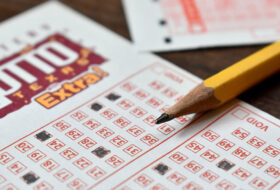
Lottery player John Cheeks has gone to court after the disappointing experience of believing he’d won a $340 million Powerball jackpot, only to be told that the numbers had been posted in error. Cheeks saw his “winning” numbers appear on the Washington DC Lottery website, but he later found out they didn’t match those from the actual draw.
He is now suing Powerball, the Multi-State Lottery Association, and Taoti Enterprises, the local contractor who runs the website and has admitted to making the error.
Cheeks says he bought a Powerball ticket for the Jan. 7, 2023, drawing. He claims he doesn’t play the lottery often but buys a ticket when jackpots soar. When he checked his ticket the next day on the lottery’s website, he saw his numbers as the winning combination for the $340 million jackpot.
However, when he went to redeem his prize at a local retailer, his ticket read “Not a Winner.” Cheeks then went to the DC Office of Lottery and Gaming prize center, where he was told the same thing. A clerk told him to throw away the ticket and that he would not be paid. That Powerball jackpot grew to over $750 million and was won in Washington state a month later.
According to Cheeks, his numbers were on the lottery’s website for three days before they were changed. Now, he wants the lottery to award him the jackpot. His attorney, Richard Evans, said the lawsuit questions the integrity and accountability of lottery operations. He added that the lottery failed to announce the compromised drawing publicly.
Evans cited a similar error in Iowa last year, where lottery officials honored erroneous winning numbers posted on the website for over six hours. However, prizes from that error ranged only from $4 to $200.
Taoti Says It Put the Numbers Up by Accident
During an administrative hearing in May 2023, Taoti Enterprises admitted to posting the numbers by accident. Instead of putting random numbers on a test website, Taoti accidentally put them on the lottery website. Once the company realized the error on Jan. 9, 2023, it removed the wrong numbers from the website.
According to court documents, Brittany Bailey, the project manager at Taoti, said Cheeks is attempting to capitalize on an obvious error. She added that the company posted the erroneous numbers on Jan. 6, 2023, a day before the drawing. That means there’s no way Cheeks’ numbers could be correct, as there’s no way to know the winning numbers in advance.
Bailey added that the erroneous numbers did not include a Powerball number but a blank red ball. According to her, any reasonable person would know that these were not the winning numbers.
Bonus checked the Powerball site and logo on Feb. 21, 2024. In a browser tab, the difference between a plain red ball and the red ball in the Powerball logo is the ball bears the word “ball.” On the site’s home page, the red “ball” follows the word “power.” Below that logo, the site’s home page lists an estimated jackpot for the Feb. 21 drawing of $348 million.
Error Prizes Are Not Uncommon
Claims of error payouts are not something uncommon in gambling, especially at retail casinos.
In one case from 2016, a woman thought she won $43 million. Katrina Bookman played the popular Ancient Egypt-inspired slot Sphinx Wild at Resorts World New York City. The machine showed she won $42,949,672. However, the casino later told her the displayed prize was due to a machine malfunction.
According to the casino, the maximum prize based on her $0.40 bet was $6,500. So, clearly, a $43 million prize is due to an error. Instead, Resorts World offered her a steak dinner and the actual award of $2.25.
Bookman then decided to sue the casino. The lawsuit’s outcome is unknown, but it was likely settled out of court or denied based on a previous similar ruling in Iowa.
In 2011, Pauline McKee thought she won $41.8 million playing the Miss Kitty slot at Isle Hotel Casino in Waterloo, Iowa. As in Bookman’s case, the casino said the displayed jackpot was due to machine malfunction.
McKee then sued, but the Iowa Supreme Court denied her claim. The judge said the machine allowed a maximum win of $10,000, and the rules and pay table account for a contract between the player and the casino. Her prize was actually only $1.85.
Similar malfunctions or errors can also happen in sports betting. Palpable errors, or palps, are obvious errors by the sportsbook, where they can deny paying the wager. However, sports betting sites sometimes end up paying palps. One recent example is Hard Rock Bet paying $127,420 to a man in Tennessee.





